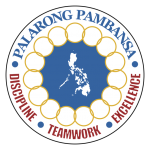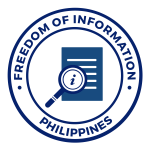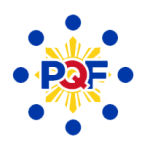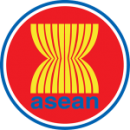ALS 2.0
The Alternative Learning System (ALS) is a parallel learning system in the Philippines that provides opportunities for out-of-school youth and adult (OSYA) learners to develop basic and functional literacy skills, and to access equivalent pathways to complete basic education.
A viable alternative to the existing formal education system, ALS encompasses both non-formal and informal sources of knowledge and skills. As a second chance education program, it aims to empower OSYA learners to continue learning in a manner, time and place suitable to their preference and circumstances, and for them to achieve their goals of improving their quality of life and becoming productive contributors to society.
In 2016, the ALS Program began undergoing reforms as part of strengthening, intensifying, and expanding its implementation. Three years of consultation, review and development of policies, training, and evaluation with partners in the government, local and international non-government agencies, and civil society organizations led to the finalization of the enhanced ALS K to 12 Basic Education Curriculum, the development of the ALS Program 2.0, and the rollout of the five-year ALS 2.0 Strategic Roadmap.
In 2022, the DepEd Bureau of Alternative Education (BAE), in partnership with SEAMEO Innotech and USAID Opportunity 2.0, launched the ALS 2.0 Monitoring and Evaluation (M&E) System Operations Handbook to help the Department in determining the effectiveness of the Program in meeting its desired outcomes and targets based on approved plans.
In 2022, DepEd and UNICEF launched two new ALS publications: The ALS ICT Strategic Plan 2022-2026, which concretizes the roles of ICT in the areas of access, quality and governance of the improved ALS Program; and the ALS Research Agenda 2022-2026, which promotes evidence-based decision-making and policy development for the ALS program to achieve quality and inclusive lifelong learning and guides the research community in contributing to ALS research work.
The ALS Report 2023 documents the incredible journey of fast-tracking the transformation of the ALS into a quality and relevant second chance basic education program from July 2016 to December 2022. It outlines the challenges faced and overcome, and details our results and accomplishments that we are proud to celebrate as an extended ALS family. It also contains a comprehensive set of recommendations for the remaining work to be undertaken to fully achieve the dream, documented in the 1986 Philippine Constitution, of an accessible, vibrant, responsive and quality ALS as a parallel pathway of learning for Filipino out-of-school youth and adults.
The ALS K to 12 Basic Education Curriculum
The ALS Program uses a contextualized non-formal curriculum which is substantially aligned with the K to 12 Curriculum for Basic Education of the formal school system, but it is not the mirror image of the formal school curriculum. It is aligned but not identical. This takes into account the prior learning of its learners and reflects the indicators of functional literacy into six interrelated learning strands.
The table below shows the six learning strands and corresponding topics or skills.
ALS K to 12 Basic Education Curriculum Learning Strands
|
Learning Strands |
Skills |
|
Learning Strand 1 |
|
|
Learning Strand 2 |
|
|
Learning Strand 3 |
|
|
Learning Strand 4 |
|
|
Learning Strand 5 |
|
| Learning Strand 6 |






